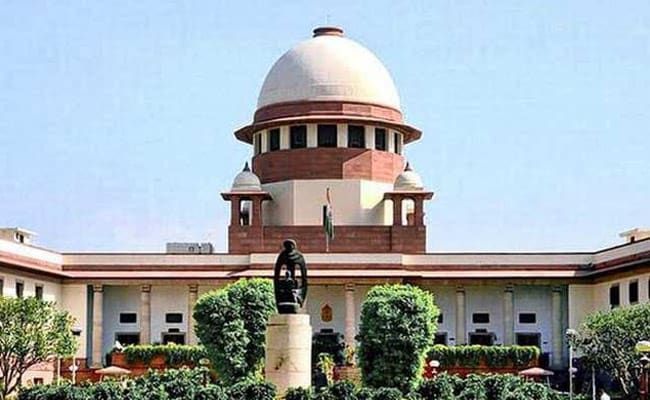New Delhi: False declaration with regard to the assets of a candidate, his/her spouse, or dependents, constitutes corrupt practice irrespective of the impact of such a false declaration on the election of the candidate, the Supreme Court said on Wednesday.
The Supreme Court said purity of election at all levels, be it the Centre, State or municipal corporation or a panchayat is a matter of national importance in which a uniform policy is desirable in the interest of all the States.
“A false declaration with regard to the assets of a candidate, his/her spouse or dependents, constitutes corrupt practice irrespective of the impact of such a false declaration on the election of the candidate. It may be presumed that a false declaration impacts the election,” a bench headed by Chief Justice U U Lalit said.
The observations came while dismissing an appeal against an order passed by the Karnataka High Court with regard to the election of a candidate in municipal corporation polls in 2018.
The high court had upheld the order of the sessions court which set aside the election of the S Rukmini Madegowda to the Mysore Municipal Corporation as Councillor from Ward No.36-Yeraganahalli, Karnataka.
The election was challenged on the complaint of C S Rajani Annaiah, who had also contested the polls.
It was alleged that Madegowda in her Affidavit of Assets had falsely declared that her husband did not possess any immovable property, and by giving such a false declaration, the Appellant had indulged in corrupt practices to get the benefit of reservation.
Madegowda’s counsel had submitted before the top court that her election was governed by the Karnataka Municipal Corporation Act and there was no requirement of any disclosure under the KMC Act or under the KMC Election Rules.
He had also questioned the authority of the Election Commission to issue the notification in 2003 requiring candidates contesting elections to disclose their assets and the assets of their spouses and dependents by filing an affidavit. The top court, however, said the power of the Election Commission includes the power to issue directions where the law is silent.
It said there is no legal impediment for the State Election Commission to issue directions requiring disclosure of assets of the candidate, his/her spouse, and dependent associates by way of affidavit.
“In issuing the notification dated July 14, 2003, the Election Commission has not encroached into the legislative domain of the Karnataka State Legislature,” the bench also comprising Justices Indira Banerjee and Ajay Rastogi said.
“While the division of powers between the Union Government and the State Governments is an essential feature of federalism, in matters of national importance, a uniform policy is essential in the interest of all the states, without disturbing the clear division of powers, so that the Union and the States legislate within their respective spheres. “The Constitution is the supreme law for the Union and for the States supported by an independent judiciary which acts as the guardian of the Constitution,” it said.
The apex court said there can be no doubt that Parliament and the respective State legislatures are supreme and not bound by any advice of the Election Commission. “It is equally true that the Election Commission has to act within the four corners of law made by Parliament and/or the concerned State Legislature, as the case may be. However, in our considered opinion, the Election Commission has issued the notification within the contours of the law,” the bench said while dismissing the appeal filed by Madegowda.
(This story has not been edited and is auto-generated from a syndicated feed.)
![]()
